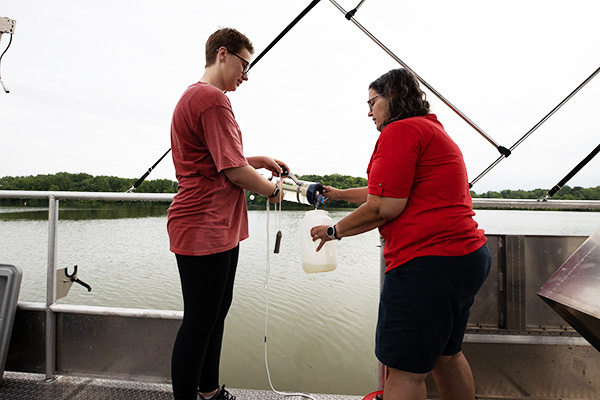Lesley Knoll named 2024 Fellow of the Association for the Sciences of Limnology and Oceanography (ASLO)
She is one of 12 members of ASLO recognized for achieving excellence in their contributions to ASLO and the aquatic sciences

Lesley Knoll named 2024 Fellow of the Association for the Sciences of Limnology and Oceanography (ASLO)
Freshwater ecologist Lesley Knoll ‘01, Ph.D. ‘11, assistant professor of Biology at Miami University, has been named a 2024 Fellow of the Association for the Sciences of Limnology and Oceanography (ASLO).
She is one of 12 members of ASLO recognized for achieving excellence in their contributions to ASLO and the aquatic sciences.
The 2024 fellows will be honored during the 2025 Aquatic Sciences Meeting in Charlotte, North Carolina, on March 27.
Knoll received her bachelor’s degree in Botany in 2001 from Miami, where she was a Regionals student for her first three years. After earning a master’s degree from Michigan State University, she received her Ph.D. from Miami in 2011, working with advisor Mike Vanni, professor of Biology who retired this past summer.
Knoll’s research focuses broadly on how global climate change affects freshwater systems. Prior to joining Miami’s Biology department in 2022, she was associate director and station biologist at Itasca Biological Station and Laboratories at the University of Minnesota Twin Cities ( 2015-2022).
She is part of a team of researchers led by Vanni that recently received its fifth National Science Foundation (NSF) Long Term Research in Environmental Biology (NSF LTREB) grant — nearly $640,000 — in support of long-term research at Acton Lake, a reservoir in Oxford, Ohio.
This month Knoll, with Jing Zhang and Thomas Fisher, professors of Statistics, received a new grant for more than $257,110 from the NSF for the LTREB project collaboration.